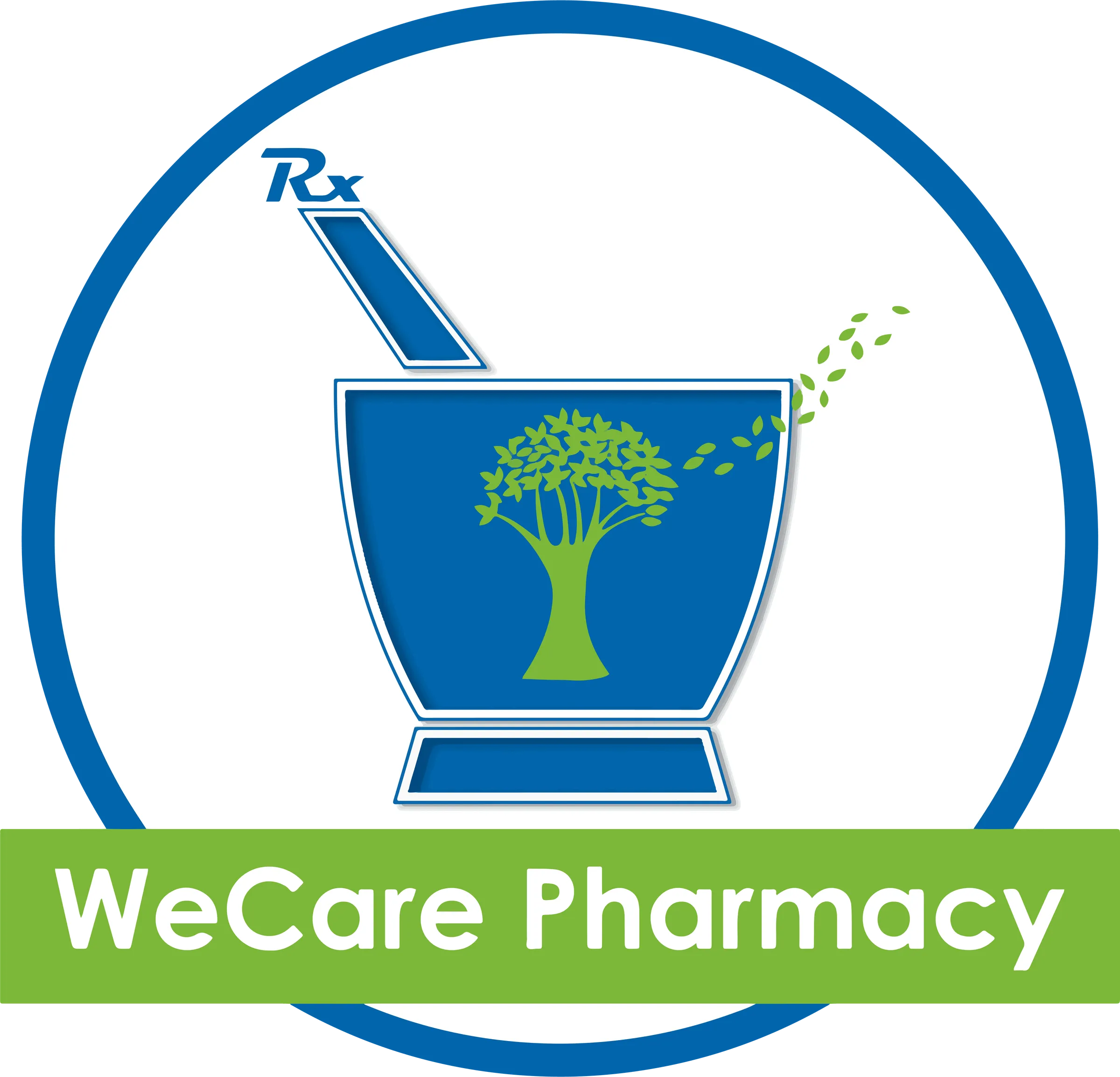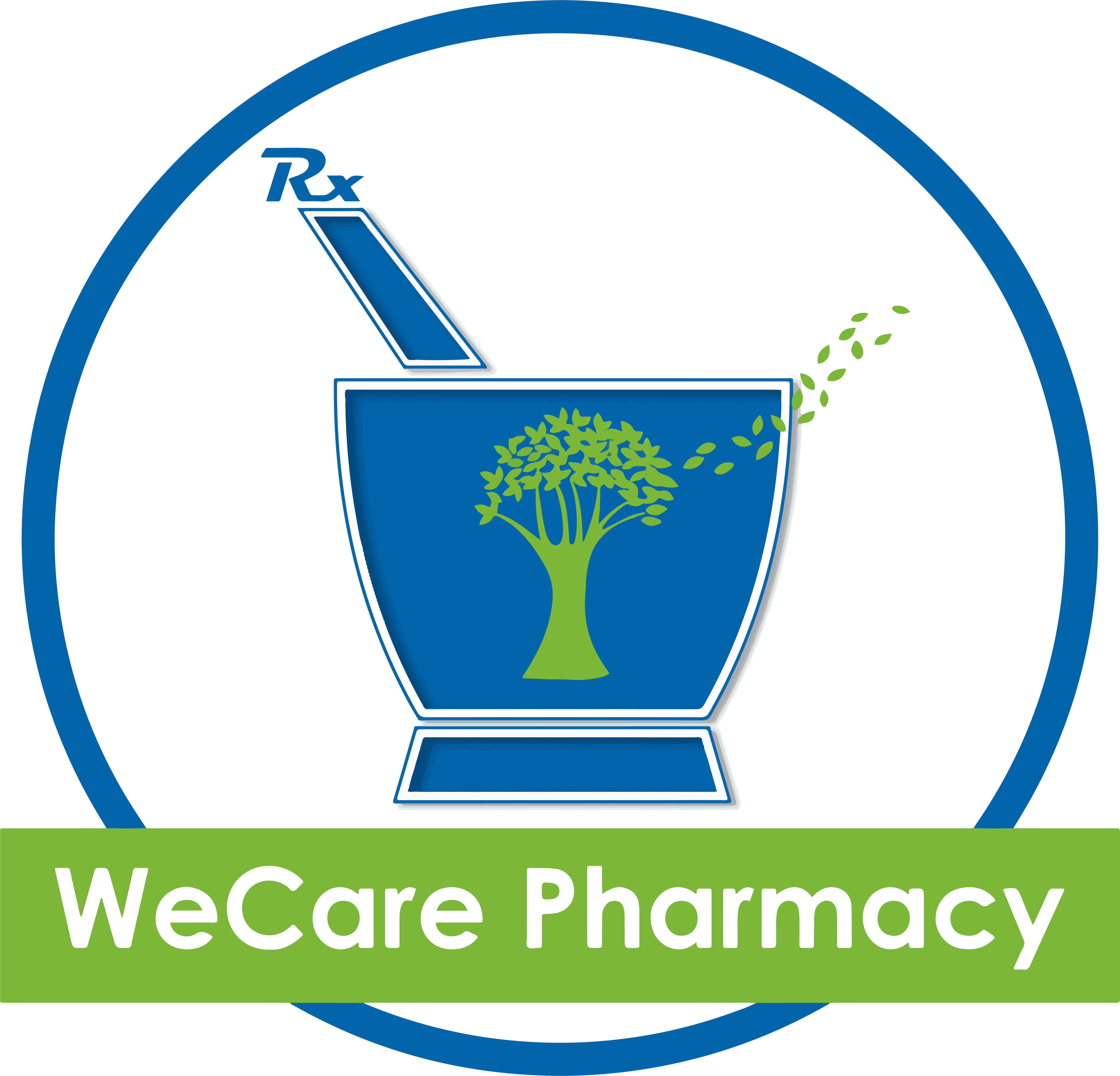- What is Breast Cancer?
- What Causes Breast Cancer?
- How is Breast Cancer Treated?
- Breast Cancer Prevention & Lifesaving Strategies
October brings us a powerful opportunity to champion women’s health and well-being. This Breast Cancer Awareness Month, let’s focus on proactive steps we can all take to promote breast health and support those around us.
Did you know that early detection significantly increases the chances of successful treatment? That’s why WeCare Pharmacy is here to empower you with knowledge about early detection signs and provide guidance on creating a personalized screening plan. We believe in the power of information and regular check-ups to keep you at your healthiest.
This month, we invite you to join us in a celebration of health and empowerment. Learn about the latest advancements in breast cancer prevention, explore the benefits of monthly self-examinations, and discover how a healthy lifestyle can contribute to overall breast health.
Whether you’re looking to enhance your own wellness routine or support a loved one, WeCare Pharmacy is your partner in proactive health care. Let’s work together to create a future where breast health is a priority for all.
Ready to take charge of your health? Explore our resources on breast cancer prevention, early detection, and support below. Remember, knowledge is power, and together, we can make a positive impact on breast health in our community.

What is Breast Cancer?
Breast cancer is a condition that results from the abnormal growth and division of cells in the breast. It is usually identified as a lump or mass in the breast, which can be situated in either the ducts or lobules of the breast tissue. If breast cancer is not treated, it can spread to other areas of the body, such as the lymph nodes, bones, lungs, or liver.
Detecting breast cancer early and seeking treatment promptly is critical for improving the prognosis and outcome of the disease. Regular mammograms, clinical breast exams, and self-examinations can help you detect breast cancer early, thereby increasing your chances of successful treatment.

What Causes Breast Cancer?
Breast cancer is a multifaceted disease, the full cause of which is not comprehensively understood. Multiple factors, including genetics, environment, and lifestyle, are known to influence the risk of developing this condition, although a single cause has yet to be definitively identified. It is noteworthy that some individuals who have high-risk factors may never develop breast cancer, while others with fewer risk factors might be diagnosed with the disease.
One genetic factor that has been associated with a greater risk of breast cancer is the presence of mutations in the BRCA1 and BRCA2 genes. However, it should be emphasized that only 5-10% of all breast cancer cases have a genetic component. Other factors, such as hormone sensitivity and exposure to certain environmental toxins, may also contribute to the development of breast cancer.
Identifying Risk Factors
There are a number of factors that can affect the risk of breast cancer, including:
- Age: The risk increases as a woman gets older.
- Family history: Women with a first-degree relative (mother, sister, daughter) who have had breast cancer are at higher risk.
- Dense breasts: Women with dense breast tissue may have a higher risk.
- Radiation therapy: Women who have had radiation therapy to the chest area for another condition (e.g., Hodgkin’s lymphoma) have a higher risk.
- Early menstruation: Women who started before age 12 have a slightly higher risk.
- Late menopause: Women who have menopause after age 55 are at a slightly higher risk.
By identifying these risk factors, women can take proactive measures to reduce their risk of developing breast cancer. This can include regular mammograms, maintaining a healthy lifestyle, and discussing risk-reducing medications with their healthcare provider.
Detecting the Warning Signs of Breast Cancer
To help you recognize any potential symptoms, here are some indicators to look out for:
- Lumps: While not all lumps are cancerous, they should still be evaluated to rule out potential concerns.
- Changes in skin texture or appearance: If you notice any changes in the texture or appearance of your breast skin, such as dimpling, puckering, or redness.
- Nipple abnormalities: Changes in your nipple, such as discharge, inversion, or itching.
- Pain or swelling: Pain or swelling of breast tissue. While various factors can cause these symptoms, they should still be evaluated to rule out potential concerns.
By being aware of these potential symptoms and seeking medical attention when necessary, you can help ensure that any issues are detected early and treated promptly, increasing your chances of a successful recovery.
How is Breast Cancer Treated?
Breast cancer is a complicated condition that has a variety of treatment options depending on each patient’s case and stage of the disease. Here are some of the treatments available:
- Lumpectomy: This surgical procedure removes only the cancerous tissue from the breast while preserving the remaining healthy tissue. It is typically used for early-stage breast cancer.
- Mastectomy: This is a surgical procedure that removes the entire breast. It is typically used for advanced breast cancer cases.
- Chemotherapy: This treatment involves using drugs to destroy cancer cells. Depending on the individual case, it can be administered before or after surgery.
- Hormone therapy: This treatment is used for hormone receptor-positive breast cancer and involves drugs that block the effects of estrogen or progesterone.
- Immunotherapy: This treatment helps the body’s immune system to fight cancer cells. It is typically used for advanced breast cancer cases.
- Radiation therapy: This treatment involves using high-energy radiation to destroy cancer cells. Depending on the individual case, it can be administered before or after surgery.
It is important to note that the individual case determines the best treatment plan for breast cancer and may involve a combination of these treatments.
Breast Cancer Prevention & Lifesaving Strategies
Although certain risk factors are beyond our control, making healthy lifestyle choices can help decrease the likelihood of developing breast cancer. Consistent mammograms, practicing breastfeeding, consuming a well-rounded diet, limiting alcohol intake, engaging in physical activity, and maintaining a healthy body weight all contribute to reducing the risk.
- Regular Breast Self-Exams: Performing monthly self-exams can help detect changes in breast tissue early.
- Clinical Breast Examinations: Schedule regular clinical breast exams with a healthcare provider to detect abnormalities.
- Mammograms: If you have risk factors, get routine mammograms as your healthcare provider advises, typically starting at age 40 or earlier.
- Know Your Risk Factors: Understand your family history and personal risk factors for breast cancer, which can help determine a proactive approach to prevention.
- Healthy Lifestyle Choices: To reduce your risk, adopt a balanced diet, maintain a healthy weight, and engage in regular physical activity.
- Limit Alcohol Consumption: Limit alcohol intake, as excessive alcohol consumption is linked to an increased risk of breast cancer.
- Smoking Cessation: If you smoke, quitting can reduce your overall cancer risk, including breast cancer.
- Hormone Therapy Awareness: If you’re considering hormone replacement therapy during menopause, discuss the risks and benefits with your healthcare provider.
- Breastfeeding: If possible, breastfeed your child, as it may reduce the risk of breast cancer.
- Genetic Testing: Consider genetic counseling and testing if you have a family history of breast cancer or carry BRCA gene mutations.
- Stay Informed: Keep up-to-date with the latest research and recommendations regarding breast cancer prevention and early detection.
- Support Networks: Build a strong support system with friends and family to help cope with the emotional aspects of breast cancer awareness and prevention.
- Advocate for Screening: Encourage friends and loved ones to prioritize breast cancer screening and early detection.
Share Information for Breast Cancer Awareness Month
Breast Cancer Awareness Month aims to raise awareness and promote proactive measures for better health. A unified effort toward understanding, prevention, and support is important in combating breast cancer. Make sure to get your annual mammogram. If you have any questions or need support, please contact us at (540) 428-7002.

